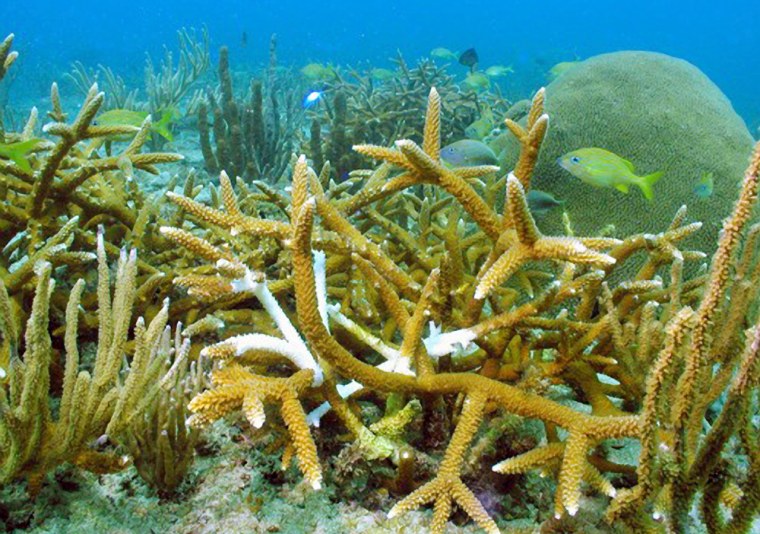A rapid decline in the world’s coral reefs could damage economies that rely on underwater sea life for tourism revenue, researchers said Friday.
Tourists spend billions of dollars each year on hotels and tours to experience the marine habitats in areas including the Caribbean, Australia and the Pacific islands.
But that money could dry up, as record amounts of coral have died off in the Caribbean and Pacific from pollution, overfishing and rising sea temperatures since the late 1990s, according to scientists at the biannual meeting of the multinational Coral Reef Task Force.
“You cannot separate the environment and the economy. They are one,” said Billy Causey, a regional director of the U.S. National Oceanic and Atmospheric Administration’s marine sanctuaries.
Studies show greenhouse gases from the burning of fossil fuels are increasing the ocean’s acidity, making it harder for coral to grow and reproduce.
Nearly 500 million people depend on coral reefs for tourism income and coastal protection, and about 30 million of those rely on coral reefs for their food, according to a 2004 report on the status of coral reefs worldwide commissioned by the Australian government.
“The people who wash the bed linens in the hotels are starting to realize their life depends on the health of the coral reefs,” said Andrew Skeat, executive director of the Great Barrier Reef Marine Park Authority.
Tourism is the fastest growing major industry in the world, and ecotourism accounts for 20 percent of the worldwide market, according to the Australian report.
In the Florida Keys, millions of tourists spend $1.2 billion annually to see or catch fish and other undersea life, Causey said at the meeting in St. Thomas, where nearly 200 researchers from the Caribbean, Florida and U.S. Pacific islands gathered.
“Some of our reefs receive more dives than anywhere in the world,” he said. “In South Florida, the environment and the economy are inextricably linked. You cannot separate the two.”
Causey encouraged officials in Florida to ban fishing in broad swaths of water, a move he said would help coral grow.
Australia’s government has banned fishing along a third of the Great Barrier Reef, which generates $3.9 billion in annual tourism revenue. The measure has helped the world’s largest reef bounce back from abnormally warm seas in 1998 and 2002, when more then half the reef was damaged and 5 percent died, Skeat said.
